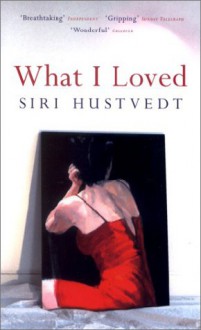Siri, the best Artificial Intelligence friend in daily life to solve multiple purposes.

Looking back at 2019 I really liked a lot of the books that I have read, but as always, there were a couple of disappointments as well. Due to the fact that I also had to write my master’s thesis (which – heureka! – is finally done), I set my goal for the annual Reading Challenge quite low at 20 and for the first time in the four years I have been doing this, I successfully managed to meet this goal.
Before I start a new year of reading, I would like to take the time for a short retrospect and share with you what I liked and disliked and why.
The top 3 of 2019
First and foremost I would like to highlight Kallocain by Karin Boye as one of the best novels I have read this past year. It is not only an example of superb writing, but it features some incredibly strong scenes that are still on my mind and still get to me whenever I think about them.
Secondly, everything written by Bradbury, but especially his Dinosaur Stories, because they were so passionate and imaginative, that they outshine Fahrenheit 451 as well as Now and Forever in this regard.
And the third place goes to Lidija Čukovskaja for her novel The deserted House, the touching and bigger than life tale of Olga Petrovna that brought tears to my eyes.
The bottom 3 of 2019
I was immensely disappointed by The Undying Fire, not only because I highly admire H. G. Wells, but also because it had such a promising start. Overall, it is too lengthy and the structure depends too much on lining up monologue after monologue after monologue that it is hard to keep your interest up.
Another big letdown was Erwachen im 21. Jahrhundert by Jürg Halter. Again, I had quite high hopes, but unfortunately this novel is too pessimistic for my taste and it is so over the top cynical! Due to Halter being a poet rather than a novelist the text is also quite demanding, which is not a bad thing per se, but in this case it is so overflowing with so much at the same time that I reached a mental overload multiple times.
Finally, Siri Hustvedt’s What I loved was by far the worst. Too descriptive, too ivory-tower elitist, a complete lack of inner logic and in my opinion, a bunch of unbelievable and uninteresting characters.
Honourable Mentions
There is one book I would like to add as an honourable mention: Simon Stålenhag’s The Electric State. Since I primarily bough it, because I had already fallen in love with his artwork a couple of years ago, I was not disappointed, even though the storyline is a little on the weak side.

I did not enjoy What I loved. I also don’t know why I sometimes force myself to continue reading certain books, although I clearly don’t like them. I already quit reading Hustvedt’s novel two or even three times before, so I guess, I really wanted this to be good, but it is just not happening for me.
Some of the peoplely parts were really good, featuring touching moments as well as believable and intense descriptions of the relationships between the four or ten protagonists (depending on how you count), but then there were also lots of random excursus and lengthy descriptions of artwork. They are way too numerous, too long, too detailed and practically irrelevant, so I started skipping them completely, which is something I normally never do. The same goes for most of the descriptions and characterisations in this novel, they just drag on and on without really going anywhere.
I also never warmed to the characters themselves. They are way too artsy for my taste and the whole thing is just elitist as fuck. Hustvedt obviously did a lot of research and wanted to incorporate as much as possible in the novel, but most of the time it turned into boastful academic name dropping. So although the characters are well and exhaustively described, to me they did not come alive and felt very flat throughout. There was something forced in all of them that just turned me away.
I do not understand how What I loved got so many good reviews. I am not even sure, whether this novel can really be described as ‘intelligent’ or if it is just superficially pretending to be. I was missing coherence and logic and to top it off, this was one of the worst, most half-assed endings I have come across since Bruce Robinson’s fucked up attempt of turning Hunter S. Thompson’s Rum Diary into a movie.

So I am nearing the part in this book, where I quit reading last time and although I admittedly do not remember very much story-wise, I do remember what made me stop reading back then: there are way too many exhaustive descriptions of artwork! For pages Hustvedt is dwelling on paintings, sculptures, installations, cut-outs of various figures in various colours and materials and whatnot. Those descriptions are too long, too detailed, they interrupt the decently interesting storyline, and above all, they've already become repetitive.